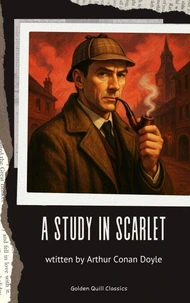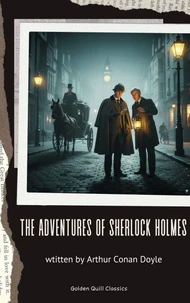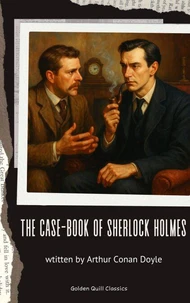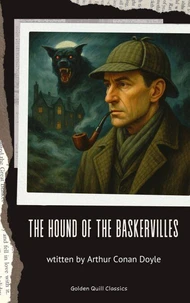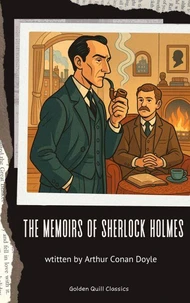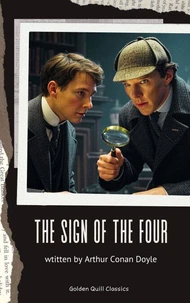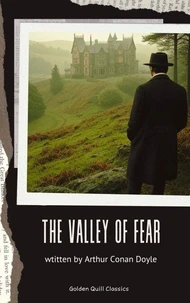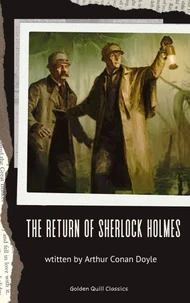The History of Spiritualism, Vol. I
Par :Formats :
Disponible dans votre compte client Decitre ou Furet du Nord dès validation de votre commande. Le format ePub est :
- Compatible avec une lecture sur My Vivlio (smartphone, tablette, ordinateur)
- Compatible avec une lecture sur liseuses Vivlio
- Pour les liseuses autres que Vivlio, vous devez utiliser le logiciel Adobe Digital Edition. Non compatible avec la lecture sur les liseuses Kindle, Remarkable et Sony
 , qui est-ce ?
, qui est-ce ?Notre partenaire de plateforme de lecture numérique où vous retrouverez l'ensemble de vos ebooks gratuitement
Pour en savoir plus sur nos ebooks, consultez notre aide en ligne ici
- Nombre de pages259
- FormatePub
- ISBN859-65--4731943-6
- EAN8596547319436
- Date de parution15/09/2022
- Protection num.Digital Watermarking
- Taille4 Mo
- Infos supplémentairesepub
- ÉditeurDIGICAT
Résumé
In "The History of Spiritualism, Vol. I, " Arthur Conan Doyle embarks on an exploration of the spiritualist movement that gained momentum in the late 19th century, a period marked by fascination with the supernatural and the quest for understanding beyond the physical realm. The book artfully combines anecdotal narratives, historical context, and philosophical musings, employing a straightforward yet engaging literary style that reflects Doyle's characteristic clarity.
As the first volume in a two-part series, it serves to illuminate the underlying principles of spiritualism, key figures, and notable events that shaped this controversial movement, presenting both proponents' and skeptics' views with intellectual rigor and an empathetic approach. Arthur Conan Doyle, renowned for creating the iconic detective Sherlock Holmes, was deeply influenced by the tragic loss of loved ones and his own experiences with the spiritualist phenomena.
His foray into this realm is not mere curiosity; it is a profound search for solace and understanding, driven by the personal grief that often colors the narrative. Doyle's unique position as a literary figure lends credibility and allure to his examination of spiritualism, as he weaves his own insights into the broader historical tapestry. This work is indispensable for those drawn to the intersections of literature, philosophy, and the esoteric.
Readers who seek to understand the cultural significance of the spiritualist movement and its impact on the Victorian psyche will find Doyle's meticulous research and compassionate prose illuminating. "The History of Spiritualism, Vol. I" promises a thought-provoking journey into a compelling chapter of humanity's quest for meaning.
As the first volume in a two-part series, it serves to illuminate the underlying principles of spiritualism, key figures, and notable events that shaped this controversial movement, presenting both proponents' and skeptics' views with intellectual rigor and an empathetic approach. Arthur Conan Doyle, renowned for creating the iconic detective Sherlock Holmes, was deeply influenced by the tragic loss of loved ones and his own experiences with the spiritualist phenomena.
His foray into this realm is not mere curiosity; it is a profound search for solace and understanding, driven by the personal grief that often colors the narrative. Doyle's unique position as a literary figure lends credibility and allure to his examination of spiritualism, as he weaves his own insights into the broader historical tapestry. This work is indispensable for those drawn to the intersections of literature, philosophy, and the esoteric.
Readers who seek to understand the cultural significance of the spiritualist movement and its impact on the Victorian psyche will find Doyle's meticulous research and compassionate prose illuminating. "The History of Spiritualism, Vol. I" promises a thought-provoking journey into a compelling chapter of humanity's quest for meaning.
In "The History of Spiritualism, Vol. I, " Arthur Conan Doyle embarks on an exploration of the spiritualist movement that gained momentum in the late 19th century, a period marked by fascination with the supernatural and the quest for understanding beyond the physical realm. The book artfully combines anecdotal narratives, historical context, and philosophical musings, employing a straightforward yet engaging literary style that reflects Doyle's characteristic clarity.
As the first volume in a two-part series, it serves to illuminate the underlying principles of spiritualism, key figures, and notable events that shaped this controversial movement, presenting both proponents' and skeptics' views with intellectual rigor and an empathetic approach. Arthur Conan Doyle, renowned for creating the iconic detective Sherlock Holmes, was deeply influenced by the tragic loss of loved ones and his own experiences with the spiritualist phenomena.
His foray into this realm is not mere curiosity; it is a profound search for solace and understanding, driven by the personal grief that often colors the narrative. Doyle's unique position as a literary figure lends credibility and allure to his examination of spiritualism, as he weaves his own insights into the broader historical tapestry. This work is indispensable for those drawn to the intersections of literature, philosophy, and the esoteric.
Readers who seek to understand the cultural significance of the spiritualist movement and its impact on the Victorian psyche will find Doyle's meticulous research and compassionate prose illuminating. "The History of Spiritualism, Vol. I" promises a thought-provoking journey into a compelling chapter of humanity's quest for meaning.
As the first volume in a two-part series, it serves to illuminate the underlying principles of spiritualism, key figures, and notable events that shaped this controversial movement, presenting both proponents' and skeptics' views with intellectual rigor and an empathetic approach. Arthur Conan Doyle, renowned for creating the iconic detective Sherlock Holmes, was deeply influenced by the tragic loss of loved ones and his own experiences with the spiritualist phenomena.
His foray into this realm is not mere curiosity; it is a profound search for solace and understanding, driven by the personal grief that often colors the narrative. Doyle's unique position as a literary figure lends credibility and allure to his examination of spiritualism, as he weaves his own insights into the broader historical tapestry. This work is indispensable for those drawn to the intersections of literature, philosophy, and the esoteric.
Readers who seek to understand the cultural significance of the spiritualist movement and its impact on the Victorian psyche will find Doyle's meticulous research and compassionate prose illuminating. "The History of Spiritualism, Vol. I" promises a thought-provoking journey into a compelling chapter of humanity's quest for meaning.



